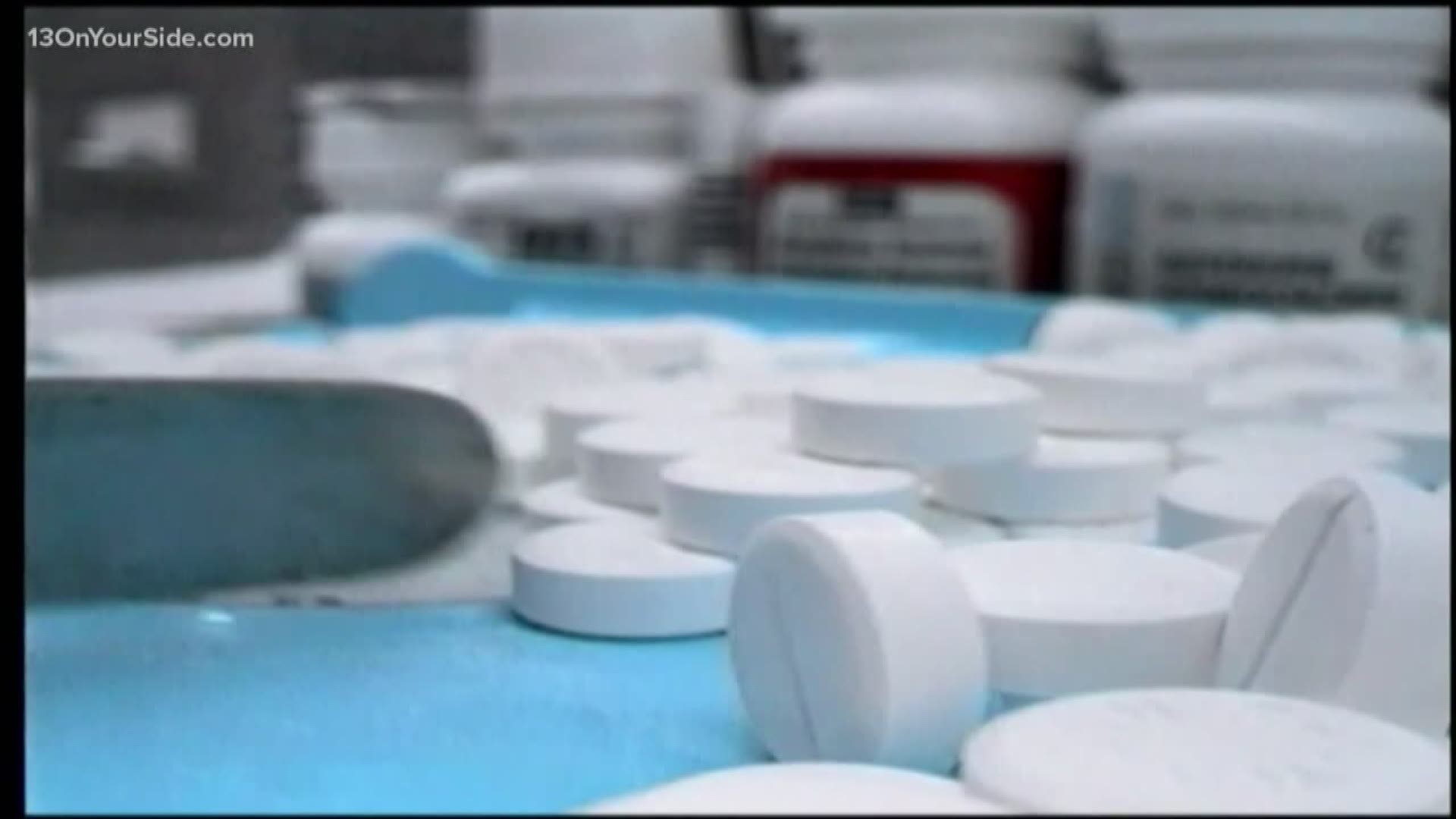KALAMAZOO, Mich. — (GRBJ) - Research on the horizon at Western Michigan University will explore how a new smartphone application can help treat opioid addiction.
Anthony DeFulio, associate professor of psychology, will lead the research, which involves testing the feasibility of a smartphone app to reduce relapse in patients who have overdosed and enroll them in medication-assisted treatment.
DeFulio collaborated with Boston-based DynamiCare to develop the app that works in tandem with salivary toxicology tests. It uses video selfies to ensure participants are actually taking the test and also employs GPS tracking technology in smartphones to ensure patients are going to counseling appointments and receiving treatments.
The project focuses on contingency management, a behavioral intervention that employs incentives to motivate healthy behavior. The incentive in this study is money.
"The classic treatment interventions work better when you use more powerful incentives because drugs are powerful incentives on their own," DeFulio said. "So, you have to compete with alternative reinforcers to get people to make different decisions."
About 20 patients are expected to participate in the two-month study. As participants successfully engage and adhere to treatment over the course of a month, they will receive money on a smart debit card. Restrictions will be placed on where the card can be used to ensure that purchases are consistent with the goals of the treatment.
DeFulio will work with Dr. Philip Pazderka, director of the emergency medicine residency program at the WMU Homer Stryker M.D. School of Medicine, to collaborate with local hospitals and offer patients who have recently overdosed a chance to immediately enroll in treatment and participate in the study.
The group also will enlist the peer recovery team at Kalamazoo Community Mental Health and Substance Abuse Services.
This is the first time the technology platform will be used in emergency departments to engage patients upon reversal from acute opioid overdose.
"WMU is situated in a region of the U.S. that is being devastated by this epidemic, and its ability to collaborate with medical and emergency facilities and personnel makes it optimally suited to this groundbreaking research,” said Dr. David Gastfriend, co-founder and chief medical officer of DynamiCare.
WMU and DynamiCare Health have been awarded a $222,383 grant from the National Institutes of Health's Helping to End Addiction Long-term Initiative for the study.
WMU's award is one of 375 grant awards across 41 states made by the NIH in 2019 to apply scientific solutions to reverse the national opioid crisis.
"It's clear that a multipronged scientific approach is needed to reduce the risks of opioids, accelerate development of effective nonopioid therapies for pain, and provide more flexible and effective options for treating addiction to opioids," said Dr. Francis Collins, NIH director, who launched the initiative in early 2018.
This story originally appeared in the Grand Rapids Business Journal. To find a similar content, pick up a copy or find more on their website.
Other GRBJ stories featured on 13 ON YOUR SIDE:
►Make it easy to keep up to date with more stories like this. Download the 13 ON YOUR SIDE app now.
Have a news tip? Email news@13onyourside.com, visit our Facebook page or Twitter. Subscribe to our YouTube channel.

